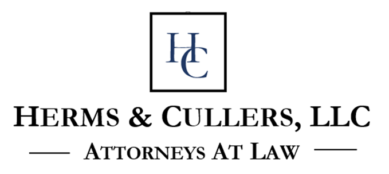Every year, more and more Coloradoans live in homes that are part of a homeowners association (“HOA”), also known as a common interest community or community association. New homes are especially likely to be part of an HOA – this was true for 59% of the 620,000 single family homes completed in 2014 in the United States. However, many buyers, sellers, and others involved in home transactions do not truly appreciate what it means to be part of an HOA. Accordingly, this post is intended to answer common, basic questions about Colorado HOAs.
- What is the purpose of an HOA? HOAs are intended to maintain property values and promote peace and harmony within a neighborhood. In the distant past, more Americans lived in rural environments where their use (or misuse) of their property had little effect on their neighbors. Increasing urbanization and therefore housing density results in more and more conflicts over property use and appearance. HOAs generally exist to mitigate these conflicts. This is why in modern subdivisions, you are unlikely to find houses painted lime green or junk cars in front yards. Many modern HOAs also own and/or maintain amenities for the neighborhood, such as pools and landscaping, and some HOAs are devoted exclusively to such purposes.
- What is an HOA? The HOA itself is a legal entity that is usually organized as a non-profit corporation and is charged with carrying on the HOA’s business. That business generally includes managing finances, enforcing covenants, etc. The HOA will be run by a board of directors, who are usually homeowners that have volunteered for the job.
- What are the covenants? The covenants (also known as a “declaration” or “covenants, conditions, and restrictions / CCRs”) is a set of obligations and restrictions on all properties within the HOA and is recorded in the real property records.
- Can I opt out? No. If set up correctly, the HOA and the covenants “run with the land,” meaning that they are binding on all owners subsequent to the original neighborhood developer. As an owner, you will be subject to the HOA obligations (such as assessments) and covenants whether you knew about them or not when you purchased the home.
- What if I disagree with decisions made by the HOA board members? As long as the board members are acting reasonably, in good faith, and within Colorado law and the HOA governing documents, there is not much you can do to oppose their decisions. Often the best solution for problem board members is to vote them out of office at an annual or special meeting.
- Do I have to pay dues/assessments? As long as the HOA is following its own rules and Colorado law, you have an obligation to make these payments. If you don’t, the HOA may impose fines, add interest, hire lawyers (which you likely will have to pay for), and even put a lien on your house.
- What if my neighbor is violating a covenant? If talking to them won’t help, you can ask the HOA to enforce the covenants. However, there may be legitimate reasons why the HOA would decide not to enforce a covenant in certain situations. In Colorado, you have the right to enforce the covenant yourself in court if you so choose.
- How can the HOA control how I use my own property – isn’t that against the law? By purchasing the property, you have agreed to abide by the rules, even if they are burdensome. There are many possible defenses to a covenant enforcement lawsuit, but simply disagreeing with the covenant is not one of them.
- What are HOA managers? Some HOAs hire professional management companies to perform many of the HOA functions. In 2015, Colorado enacted licensing requirements for these managers.
- I’m considering buying a home that is in an HOA? What should do? You should get a copy of the covenants, rules, bylaws, and any other such documents and make sure you can live with them. Talk with neighbors or board members to determine whether the HOA is dysfunctional or conflict-ridden. Ask for the HOA’s finances to see if it is adequately funded for the foreseeable future, in order to avoid a surprise special assessment down the line.
- What is CCIOA? CCIOA is an acronym for “Colorado Common Interest Ownership Act” and is pronounced “Kiowa” (like the Native American tribe). The Colorado Legislature enacted CCIOA effective in 1992 to regulate Colorado HOAs, however, not all provisions apply to pre-1992 HOAs. CCIOA is a very long and complicated statute and has been amended over 30 times. A major amendment effective in 2006 imposes many governance requirements on HOAs and gives homeowners additional rights. Note that since many HOAs are organized as non-profit corporations, provisions of Colorado’s non-profit statutes also apply to HOAs.
Posted by Jeffrey Cullers
